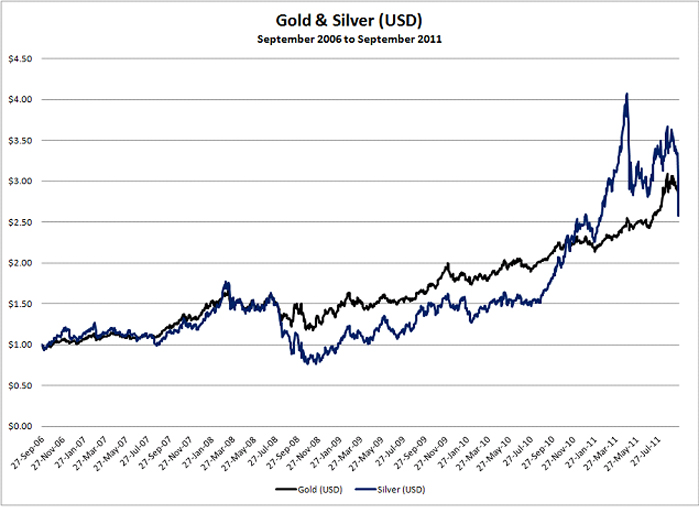The Allure of Gold: Understanding Ownership Limits and Benefits
Related Articles: The Allure of Gold: Understanding Ownership Limits and Benefits
Introduction
With great pleasure, we will explore the intriguing topic related to The Allure of Gold: Understanding Ownership Limits and Benefits. Let’s weave interesting information and offer fresh perspectives to the readers.
Table of Content
The Allure of Gold: Understanding Ownership Limits and Benefits

Gold, a precious metal with a history spanning millennia, has long captivated humanity. Its enduring value, both financial and symbolic, has made it a coveted asset across cultures and time. While the allure of gold remains constant, the question of how much one can own, and the implications of that ownership, are subject to various factors.
This article delves into the complexities of gold ownership, exploring the limitations imposed by regulations and the potential benefits of owning this precious metal. It will examine the diverse facets of gold ownership, providing a comprehensive understanding of the subject matter.
Navigating the Regulatory Landscape:
The amount of gold one can own is not universally defined. Instead, regulations governing gold ownership vary significantly across jurisdictions.
1. Government Regulations:
- United States: In the United States, there are no legal restrictions on the amount of gold an individual can own. However, the Internal Revenue Service (IRS) requires reporting of gold holdings exceeding certain thresholds for tax purposes.
- European Union: The European Union does not impose any restrictions on gold ownership. However, individual member states may have their own regulations.
- Other Countries: Several countries, including China, India, and Russia, have imposed restrictions on gold ownership, primarily for economic and strategic reasons. These regulations may include limitations on the amount of gold that can be held by individuals or restrictions on the import and export of gold.
2. Financial Institutions:
- Banks and Brokerages: Banks and brokerages often have their own policies regarding gold ownership, which may include limits on the amount of gold that can be held in a safe deposit box or through a brokerage account.
- Gold Exchange Traded Funds (ETFs): Investing in gold ETFs provides a convenient and regulated way to own a portion of gold without physically holding it. These ETFs typically have their own investment limits.
Understanding the Benefits of Gold Ownership:
Beyond the regulatory landscape, the decision of how much gold to own is often driven by individual investment goals and risk tolerance. Gold offers several potential benefits:
1. Portfolio Diversification:
- Gold is considered a safe-haven asset, meaning its value tends to rise during times of economic uncertainty or market volatility. This can help to protect a portfolio’s value during periods of market decline.
- By incorporating gold into a diversified portfolio, investors can mitigate overall risk and potentially improve returns over the long term.
2. Inflation Hedge:
- Gold’s value tends to rise during periods of inflation, as its purchasing power remains relatively stable. This makes it an attractive investment for individuals seeking to preserve their wealth during times of rising prices.
3. Store of Value:
- Gold has a long history as a store of value, retaining its purchasing power over time. Its intrinsic value, combined with its limited supply, makes it a reliable asset for preserving wealth.
4. Tangible Asset:
- Unlike stocks, bonds, or other intangible assets, gold is a tangible asset that can be physically held. This provides a sense of security and control over one’s investments.
5. Global Currency:
- Gold has been used as a form of currency throughout history and is still considered a global reserve asset. This makes it a valuable asset for international transactions and trade.
Factors Influencing Gold Ownership Decisions:
The decision of how much gold to own is a personal one, influenced by various factors:
1. Investment Goals:
- Individuals with a long-term investment horizon and a focus on preserving wealth may choose to allocate a significant portion of their portfolio to gold.
- Those seeking short-term gains or who are more risk-tolerant may choose to hold a smaller amount of gold.
2. Risk Tolerance:
- Investors with a high risk tolerance may be willing to allocate a larger portion of their portfolio to gold, recognizing its potential for appreciation during periods of market volatility.
- Those with a lower risk tolerance may prefer to allocate a smaller portion of their portfolio to gold, opting for more conservative investments.
3. Financial Situation:
- Individuals with a large amount of disposable income may be able to afford to allocate a significant portion of their assets to gold.
- Those with limited financial resources may need to allocate a smaller portion of their assets to gold.
4. Market Conditions:
- When interest rates are low and inflation is high, gold may be a more attractive investment.
- When interest rates are high and inflation is low, other asset classes may be more attractive.
5. Personal Preferences:
- Some individuals may have a strong preference for owning gold due to its historical significance or its perceived value as a safe-haven asset.
FAQs:
Q: What are the tax implications of owning gold?
A: The tax implications of owning gold vary depending on the jurisdiction and the specific circumstances. In the United States, for example, gold is considered a capital asset, and any profits from its sale are subject to capital gains tax. However, there are certain exceptions, such as the sale of gold held for more than a year, which may qualify for a lower capital gains tax rate. It is important to consult with a qualified tax advisor to understand the specific tax implications of owning gold in your jurisdiction.
Q: How can I store my gold safely?
A: There are several options for storing gold safely:
- Safe Deposit Box: Banks and other financial institutions offer safe deposit boxes for storing valuable items, including gold.
- Home Safe: A home safe can provide a secure location to store gold, although it is important to choose a safe that is resistant to burglary and fire.
- Gold Storage Companies: Specialized gold storage companies offer secure storage facilities for gold bullion and coins.
Q: How can I buy gold?
A: Gold can be purchased through various channels:
- Bullion Dealers: Bullion dealers are specialized businesses that buy and sell gold bullion and coins.
- Banks and Brokerages: Some banks and brokerages offer gold investment products, such as gold ETFs or gold accounts.
- Online Platforms: Several online platforms allow individuals to buy and sell gold.
Tips for Owning Gold:
- Do your research: Before investing in gold, it is important to understand the risks and potential rewards.
- Diversify your portfolio: Don’t put all your eggs in one basket. Diversify your portfolio with other asset classes, such as stocks, bonds, and real estate.
- Store your gold safely: Choose a secure location to store your gold, such as a safe deposit box or a home safe.
- Consider the costs: There are costs associated with buying and selling gold, such as storage fees and commissions.
- Consult with a financial advisor: A financial advisor can help you develop an investment strategy that is right for your individual needs and risk tolerance.
Conclusion:
Owning gold can be a valuable part of a diversified investment portfolio, offering potential benefits such as portfolio diversification, inflation hedging, and a store of value. However, it is important to understand the regulatory landscape, the potential risks and rewards, and to make informed decisions based on your individual investment goals and risk tolerance. By carefully considering these factors, individuals can make informed choices regarding gold ownership and potentially reap the benefits of this precious metal.








Closure
Thus, we hope this article has provided valuable insights into The Allure of Gold: Understanding Ownership Limits and Benefits. We thank you for taking the time to read this article. See you in our next article!